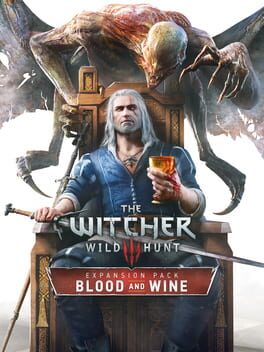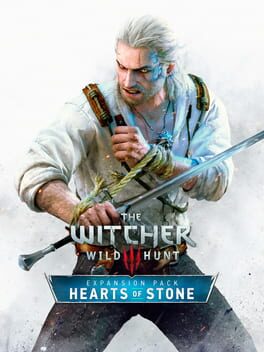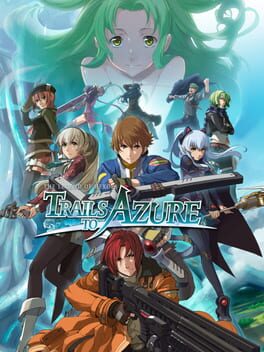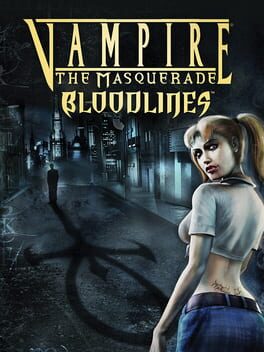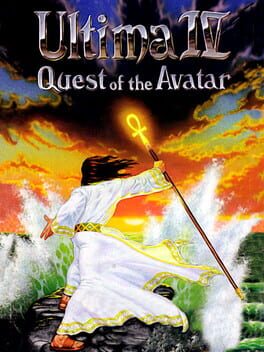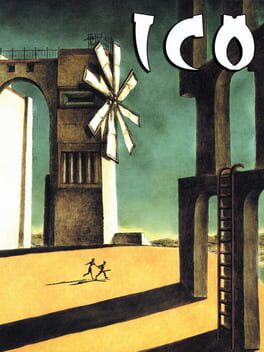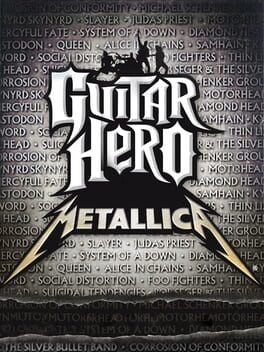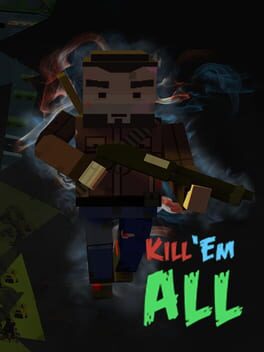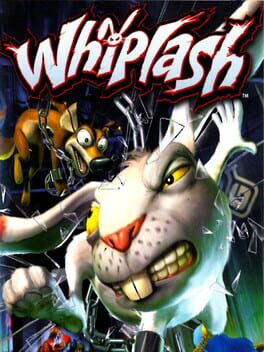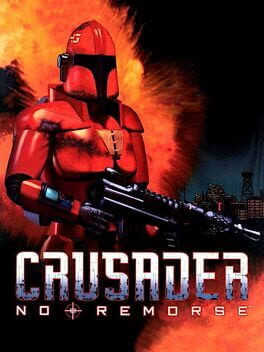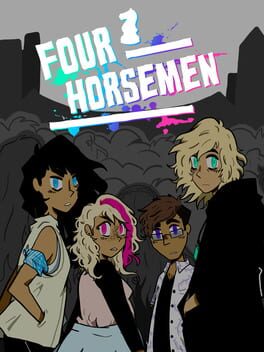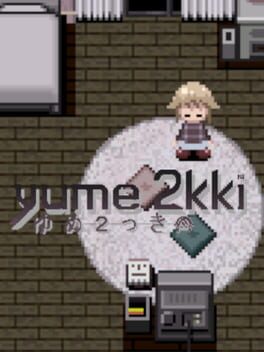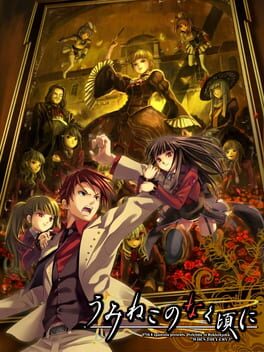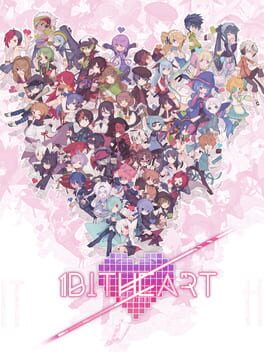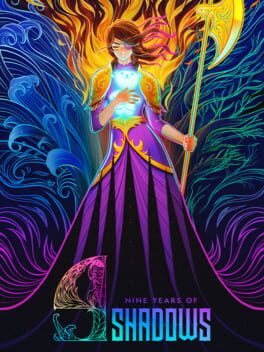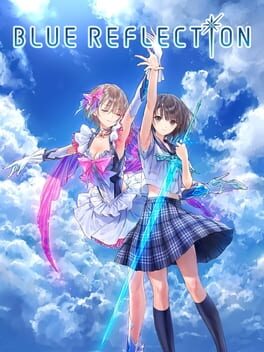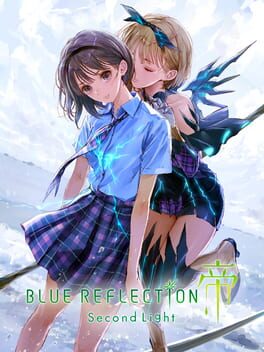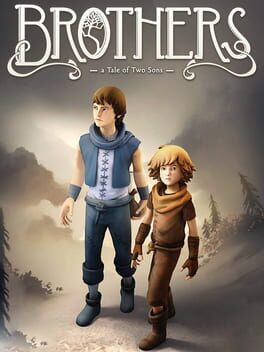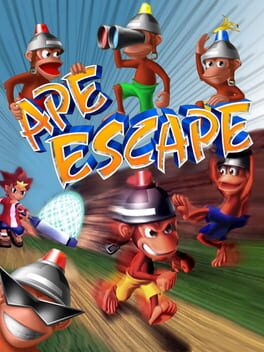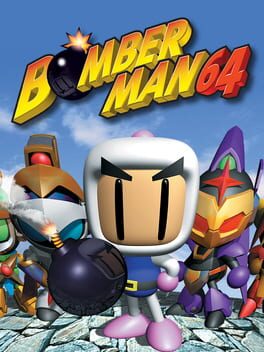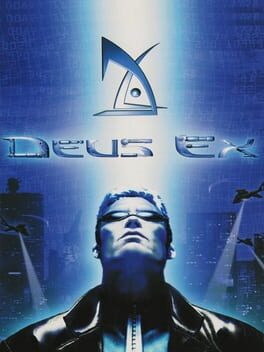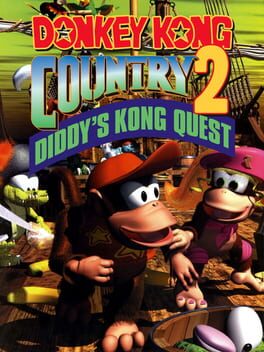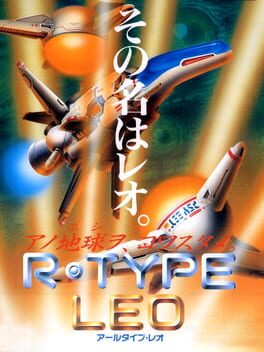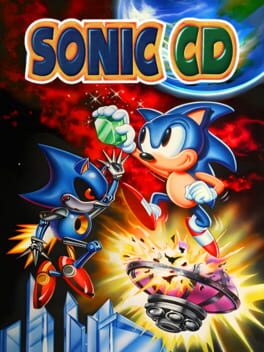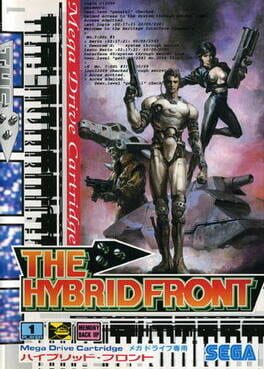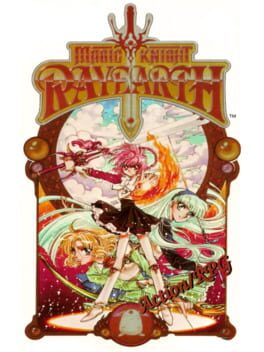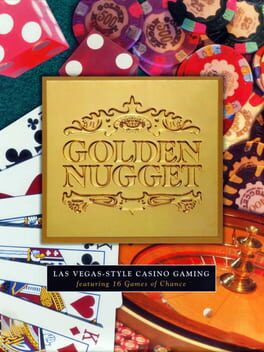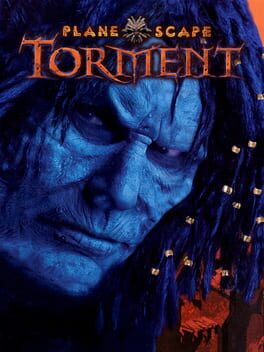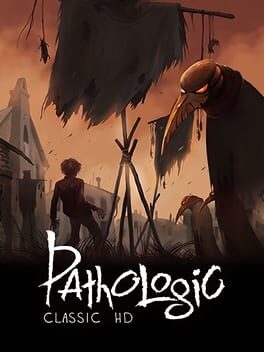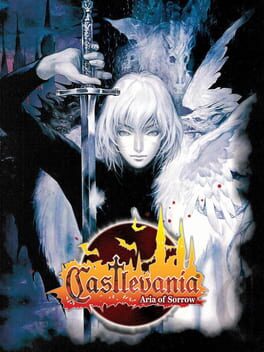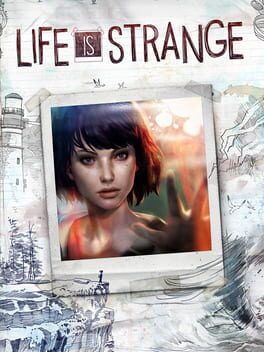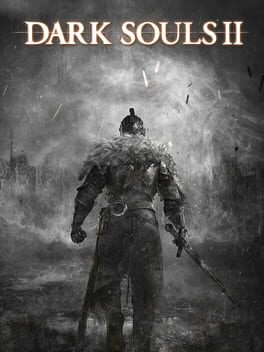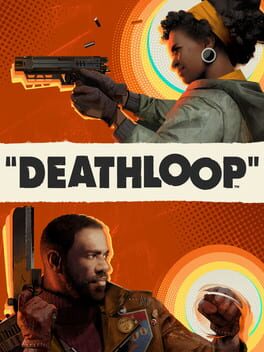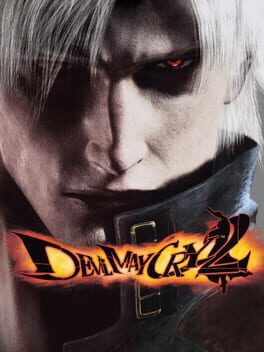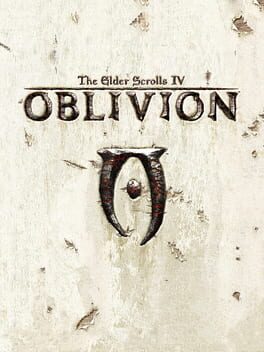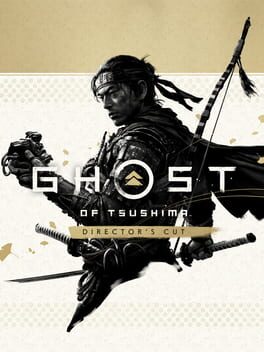caleb_okazaki
156 reviews liked by caleb_okazaki
Final Fantasy VII
1997
For starters, I was not expecting myself to have binge this game so soon after buying the game.
FF7 was not the first game I was originally intending to play in this series but I couldn't help still wanting to play it due to recommendations from friends and as rebirth has just came out.
What I hadn't expect though was a story, so entrenched in so many ideas that I think it reasons that it stands the test of time. From the beginning, insinuating a anti-corporation stance with Barret and Avalanche, it truly immerses you to midgar.
What this game does with it's protagonist has to be one of the most touching story I've seen in gaming. Cloud's character paved the way for a lot of my favourite characters in some shape or form, but that's not even the full brunt on what makes me appreciate him. His inspirations and insecurities are at the heart of the story. They somehow managed to trick me multiple times in terms of reveals that one its all said and done, it does so in such a profound and human way.
It feels like a triumph in storytelling and video games and I'm genuinely happy I got to experience this classic to it's fullest.
FF7 was not the first game I was originally intending to play in this series but I couldn't help still wanting to play it due to recommendations from friends and as rebirth has just came out.
What I hadn't expect though was a story, so entrenched in so many ideas that I think it reasons that it stands the test of time. From the beginning, insinuating a anti-corporation stance with Barret and Avalanche, it truly immerses you to midgar.
What this game does with it's protagonist has to be one of the most touching story I've seen in gaming. Cloud's character paved the way for a lot of my favourite characters in some shape or form, but that's not even the full brunt on what makes me appreciate him. His inspirations and insecurities are at the heart of the story. They somehow managed to trick me multiple times in terms of reveals that one its all said and done, it does so in such a profound and human way.
It feels like a triumph in storytelling and video games and I'm genuinely happy I got to experience this classic to it's fullest.
Lies of P
2023
This review contains spoilers
Lies of P is a game about lying.
For a game that copies a lot of the most recognizable characteristics of From Software games, it still feels like a wholly original and unique game despite how many people write this game off as a ‘Bloodborne clone’. What I think Lies manages to do that other souls-likes fail at is advancing the design elements of From rather than simply siphoning their mechanics to influence how the player perceives the game: Pulse Cells are analogous to the Estus Flask, but also let you recharge your final Cell if you perform well enough in combat, opening up build options in whether you want to do more damage in this riskier state or simply want a faster charge rate. Legion Arms reflect a much more limited, less abusable version of Sekiro’s Shinobi Prosthetic, and Guard Regain’s compatibility with blocked damage places this game in an aggression range between DS3 and Bloodborne, with the parry-focused combat of Sekiro.
Because of these various yet closely associated influences, the game is almost like a perfect remix of the Fromsoft formula, allowing you to appreciate where certain ideas are pulled from before the game puts a new spin on them. I’m personally incredibly happy with the level design of this game, which feels like it draws most directly from Dark Souls II of all places, a risky choice considering the general attitude most people have towards that game. One of my biggest complaints with Dark Souls III is how that games’ level design very quickly abandons any aspect of interconnectivity or large-scale exploration that the first two games in the series allowed for in favor of an almost entirely linear experience that put its combat front and center, for better or worse. Lies of P manages to somehow have the best of both worlds, with incredibly engaging bosses that I always look forward to fighting and levels that don’t feel like straight lines with an absurd number of bonfires. Most levels here wrap around themselves in really impressive ways that allow for stargazers to be placed incredibly sparingly, a design choice I will always prefer to DS3’s more ‘theme-park’ approach to level progression.
Beyond the game’s astonishing level of mechanical cohesion (I haven’t even mentioned the Assembly system, which is honestly reason enough to play this game if you’re a fan of games with similar combat systems), the cohesion of this game’s story is criminally undervalued. I can’t really blame most people for not being able to take this game seriously for being a soulslike about… Pinnochio, especially when most of our internal perceptions of the character are either of the Disney version or the character in the Shrek movies. You’re just going to have to trust me when I say that this game is a very thought-out adaptation of the source material and doesn’t simply use the Pinocchio property as a shallow aesthetic stunt. Lies is a game that actually uses the property it’s adapting within the vehicle of it’s story, and I have an endless respect for this game in how much faith it has in its own concept. When asked “What makes someone human?” Carlo Collodi’s The Adventures of Pinnochio serials answers that it is our ability to help others and act for their sake that makes us human, as shown in Pinocchio’s transformation at the end of the story after months of studying, working hard and saving money to care for his sick father. Lies of P’s answer, is actually not very different: We’re human because we can choose to act, and by exercising our agency we help each other far more than we help only ourselves. The game’s Real Boy ending sees everyone in the hotel replaced with a puppet copy after being killed by the newly reborn, perfectly obedient Carlo, after. The game’s most ‘Pinocchio’ mechanic, Lying, even shows a refreshing amount of nuance and respect to human morality by never painting the choice to lie or not as a simple choice between ‘doing the right thing’ and ‘doing the wrong thing’. Many of the choices in this game feel like they lack a ‘right’ answer, but often I found that lying to most people was often a mercy that showcased how communication often has to fulfill an emotional need more than a logical one. That’s not to say that lying is always the new ‘right thing’ in this game; Although the best ending in the game requires you to express your humanity a lot (through lying, mostly), the game still has a couple lies that genuinely stumped me on whether I wanted to lie or not; Do you decipher Alidoro’s scroll and tell Eugenie’s brother is dead? Do you tell Venigni that your own father is responsible for the destruction of Krat? Do you admit to Arlecchino that you are, in fact, a murderer? I can’t begin to express how relieving it is that this game isn’t trying to lecture the player about honesty or morality, understanding that lying is both innately amoral and innately part of the human experience. Lying is a choice, and what is more human than the ability to make our own choices?
Lies of P is the most honest game I’ve played.
For a game that copies a lot of the most recognizable characteristics of From Software games, it still feels like a wholly original and unique game despite how many people write this game off as a ‘Bloodborne clone’. What I think Lies manages to do that other souls-likes fail at is advancing the design elements of From rather than simply siphoning their mechanics to influence how the player perceives the game: Pulse Cells are analogous to the Estus Flask, but also let you recharge your final Cell if you perform well enough in combat, opening up build options in whether you want to do more damage in this riskier state or simply want a faster charge rate. Legion Arms reflect a much more limited, less abusable version of Sekiro’s Shinobi Prosthetic, and Guard Regain’s compatibility with blocked damage places this game in an aggression range between DS3 and Bloodborne, with the parry-focused combat of Sekiro.
Because of these various yet closely associated influences, the game is almost like a perfect remix of the Fromsoft formula, allowing you to appreciate where certain ideas are pulled from before the game puts a new spin on them. I’m personally incredibly happy with the level design of this game, which feels like it draws most directly from Dark Souls II of all places, a risky choice considering the general attitude most people have towards that game. One of my biggest complaints with Dark Souls III is how that games’ level design very quickly abandons any aspect of interconnectivity or large-scale exploration that the first two games in the series allowed for in favor of an almost entirely linear experience that put its combat front and center, for better or worse. Lies of P manages to somehow have the best of both worlds, with incredibly engaging bosses that I always look forward to fighting and levels that don’t feel like straight lines with an absurd number of bonfires. Most levels here wrap around themselves in really impressive ways that allow for stargazers to be placed incredibly sparingly, a design choice I will always prefer to DS3’s more ‘theme-park’ approach to level progression.
Beyond the game’s astonishing level of mechanical cohesion (I haven’t even mentioned the Assembly system, which is honestly reason enough to play this game if you’re a fan of games with similar combat systems), the cohesion of this game’s story is criminally undervalued. I can’t really blame most people for not being able to take this game seriously for being a soulslike about… Pinnochio, especially when most of our internal perceptions of the character are either of the Disney version or the character in the Shrek movies. You’re just going to have to trust me when I say that this game is a very thought-out adaptation of the source material and doesn’t simply use the Pinocchio property as a shallow aesthetic stunt. Lies is a game that actually uses the property it’s adapting within the vehicle of it’s story, and I have an endless respect for this game in how much faith it has in its own concept. When asked “What makes someone human?” Carlo Collodi’s The Adventures of Pinnochio serials answers that it is our ability to help others and act for their sake that makes us human, as shown in Pinocchio’s transformation at the end of the story after months of studying, working hard and saving money to care for his sick father. Lies of P’s answer, is actually not very different: We’re human because we can choose to act, and by exercising our agency we help each other far more than we help only ourselves. The game’s Real Boy ending sees everyone in the hotel replaced with a puppet copy after being killed by the newly reborn, perfectly obedient Carlo, after. The game’s most ‘Pinocchio’ mechanic, Lying, even shows a refreshing amount of nuance and respect to human morality by never painting the choice to lie or not as a simple choice between ‘doing the right thing’ and ‘doing the wrong thing’. Many of the choices in this game feel like they lack a ‘right’ answer, but often I found that lying to most people was often a mercy that showcased how communication often has to fulfill an emotional need more than a logical one. That’s not to say that lying is always the new ‘right thing’ in this game; Although the best ending in the game requires you to express your humanity a lot (through lying, mostly), the game still has a couple lies that genuinely stumped me on whether I wanted to lie or not; Do you decipher Alidoro’s scroll and tell Eugenie’s brother is dead? Do you tell Venigni that your own father is responsible for the destruction of Krat? Do you admit to Arlecchino that you are, in fact, a murderer? I can’t begin to express how relieving it is that this game isn’t trying to lecture the player about honesty or morality, understanding that lying is both innately amoral and innately part of the human experience. Lying is a choice, and what is more human than the ability to make our own choices?
Lies of P is the most honest game I’ve played.
If there’s anything in this world worth keeping alive, it’s love.
In the void that is Revachol, we see the light of love and hope slowly fade away. It is up to us to cultivate and nurture that light so it does not die. Love is not dead! As you read this, you are alive and breathing, and it's up to you to seize what remains and fight for it. We can no longer wait for some great revolution that will fix all of our problems. If you truly desire a revolution, you must create the conditions necessary to birth it!
Disco Elysium isn’t just a game about what political faction you align with or finding out who lynched the man behind Whirling-in-Rags; it’s a story about love and why we must hold onto it, even in the darkest of times. I understand that nowadays, with the current state of affairs, it's hard to believe in love and hope. It's difficult to place our hope in a future that seems to have been stolen away from us, yet that's precisely when we need it the most.
I choose to believe in love. I choose to hold on to the hope that a better future is possible, no matter what, because I believe it is. The people we know, the community we live in, and the world we inhabit are worth fighting for. Disco Elysium taught me that fixing the world and making it a better place isn’t just about picking up a gun and waging some violent revolution; it’s about cultivating community and caring for those in it. That’s where the true beauty of Disco Elysium lies.
I believe the way this game conveys that message is quite powerful. Disco doesn't make some grand showy gesture beating you over the head with its message; instead, it laboriously takes the time to show you that the world you live in is beautiful and worth fighting for. It spends the time showing you the inner lives of those around you and has you helping them, one person at a time.
There is one specific character that I feel best embodies this: Cuno. Cuno, at first, is seen to be an irrational, difficult, vulgar, and poorly-behaved child, which leads you to inevitably hate him. As you learn more about Cuno and his home life, however, you realise there’s something greater at play. He doesn’t act out for the hell of it; he is the way he is because his father is a drunk who’s fallen down on his luck due to becoming a victim of the system giving up on him and his son. He’s left with no choice. The system has abandoned Uuno and his son, leaving them both to fend for themselves and pick up the pieces. Which sadly isn’t uncommon in Revachol and the real world as well. It’s perhaps one of the most striking and poignant stories in the game. I eventually went from despising Cuno to feeling empathy for him, as I did for many others in Revachol when I learned their stories.
I believe this approach to storytelling and character writing is incredibly effective, and the best part about Disco Elysium is that these kinds of stories are all over the game. This goes to show how much love and care was put into humanising the inhabitants of Revachol, which helps make the world feel alive. Because of how well the game fleshed out its world and characters Disco Elysium was successful at conveying the message that this world is worth fighting for. Not only was I captivated by this world, but as the game drew to a close, I found myself deeply invested in the wellbeing of these characters and the city.
As I learned about these stories, Revachol’s history, and the many political factions vying for power, I realised that this game was never about solving a murder or finding which faction is "correct." It was about learning to love those around us and working together to create a better world, one step at a time. Creating a better world was never an unattainable goal conjured up in the minds of idealistic and "ignorant" kids. It is a possible reality, but it demands the working toiling masses of the world unite and work hand in hand in creating this future. It is on us to seize the future and lift eachother up when we need it most.
Never give up on fighting for this future. It is only dead when you allow yourself to be convinced that it is.
In the void that is Revachol, we see the light of love and hope slowly fade away. It is up to us to cultivate and nurture that light so it does not die. Love is not dead! As you read this, you are alive and breathing, and it's up to you to seize what remains and fight for it. We can no longer wait for some great revolution that will fix all of our problems. If you truly desire a revolution, you must create the conditions necessary to birth it!
Disco Elysium isn’t just a game about what political faction you align with or finding out who lynched the man behind Whirling-in-Rags; it’s a story about love and why we must hold onto it, even in the darkest of times. I understand that nowadays, with the current state of affairs, it's hard to believe in love and hope. It's difficult to place our hope in a future that seems to have been stolen away from us, yet that's precisely when we need it the most.
I choose to believe in love. I choose to hold on to the hope that a better future is possible, no matter what, because I believe it is. The people we know, the community we live in, and the world we inhabit are worth fighting for. Disco Elysium taught me that fixing the world and making it a better place isn’t just about picking up a gun and waging some violent revolution; it’s about cultivating community and caring for those in it. That’s where the true beauty of Disco Elysium lies.
I believe the way this game conveys that message is quite powerful. Disco doesn't make some grand showy gesture beating you over the head with its message; instead, it laboriously takes the time to show you that the world you live in is beautiful and worth fighting for. It spends the time showing you the inner lives of those around you and has you helping them, one person at a time.
There is one specific character that I feel best embodies this: Cuno. Cuno, at first, is seen to be an irrational, difficult, vulgar, and poorly-behaved child, which leads you to inevitably hate him. As you learn more about Cuno and his home life, however, you realise there’s something greater at play. He doesn’t act out for the hell of it; he is the way he is because his father is a drunk who’s fallen down on his luck due to becoming a victim of the system giving up on him and his son. He’s left with no choice. The system has abandoned Uuno and his son, leaving them both to fend for themselves and pick up the pieces. Which sadly isn’t uncommon in Revachol and the real world as well. It’s perhaps one of the most striking and poignant stories in the game. I eventually went from despising Cuno to feeling empathy for him, as I did for many others in Revachol when I learned their stories.
I believe this approach to storytelling and character writing is incredibly effective, and the best part about Disco Elysium is that these kinds of stories are all over the game. This goes to show how much love and care was put into humanising the inhabitants of Revachol, which helps make the world feel alive. Because of how well the game fleshed out its world and characters Disco Elysium was successful at conveying the message that this world is worth fighting for. Not only was I captivated by this world, but as the game drew to a close, I found myself deeply invested in the wellbeing of these characters and the city.
As I learned about these stories, Revachol’s history, and the many political factions vying for power, I realised that this game was never about solving a murder or finding which faction is "correct." It was about learning to love those around us and working together to create a better world, one step at a time. Creating a better world was never an unattainable goal conjured up in the minds of idealistic and "ignorant" kids. It is a possible reality, but it demands the working toiling masses of the world unite and work hand in hand in creating this future. It is on us to seize the future and lift eachother up when we need it most.
Never give up on fighting for this future. It is only dead when you allow yourself to be convinced that it is.
From Blaviken to Toussaint, I've followed The Witcher through all of his misadventures. These adventures have shaped Geralt over the course of seven books and three games, most of which are fantasy stories that I hold in the highest regard. The Witcher is one of the genre's crown jewels, in my opinion; its distinct brand of ethical dilemmas and its complex character writing drew me in as a teenager, and they continue to captivate my imagination and stir my soul to this day.
These adventures, however, cannot last forever; every story must end. The final expansion for The Witcher 3, Blood and Wine, aims to serve as an epilogue chapter in Geralt's story, and I must admit that it is one of the most fitting and satisfying ways this saga could conclude. Although the beautiful, lush mediaeval countryside and vineyards of Toussaint did not fully capture my heart on a second playthrough eight years later, I would be lying if I said I could think of a more suitable place to end Geralt's adventure in. Toussaint is large—almost shockingly large for what should be the setting of an epilogue chapter, but I believe its size works well in its favour. When compared to the previous expansion, Hearts of Stone, I discovered something interesting. Hearts of Stone demonstrates an impressive degree of restraint in its approach to storytelling, while Blood and Wine takes a hard left turn by expanding the scope massively and letting the chains loose, reminiscent of The Wild Hunt's massively complex narrative. What sets Blood and Wine apart, however, is how it refines and enhances the expansive and nonlinear storytelling approach of The Wild Hunt, which results in what I feel to be a vastly more enjoyable and satisfying narrative experience.
CD Projekt Red handles everything here with the utmost care, and I can feel the love they put into Blood and Wine. It’s incredibly commendable how much respect they have for the source material and how dedicated they are to honouring The Witcher’s history in this expansion. I would be remiss not to praise this expansion for the immense love and care that went into it. Serving as an epilogue to a multi-year-long epic, Blood and Wine stands as one of the most impressive storytelling feats of the past decade. Everything here is almost perfect, and despite not fully capturing my heart in the way I had hoped it would, I’m still deeply satisfied and moved by Blood and Wine.
This is truly one of the greatest expansions of all time.
These adventures, however, cannot last forever; every story must end. The final expansion for The Witcher 3, Blood and Wine, aims to serve as an epilogue chapter in Geralt's story, and I must admit that it is one of the most fitting and satisfying ways this saga could conclude. Although the beautiful, lush mediaeval countryside and vineyards of Toussaint did not fully capture my heart on a second playthrough eight years later, I would be lying if I said I could think of a more suitable place to end Geralt's adventure in. Toussaint is large—almost shockingly large for what should be the setting of an epilogue chapter, but I believe its size works well in its favour. When compared to the previous expansion, Hearts of Stone, I discovered something interesting. Hearts of Stone demonstrates an impressive degree of restraint in its approach to storytelling, while Blood and Wine takes a hard left turn by expanding the scope massively and letting the chains loose, reminiscent of The Wild Hunt's massively complex narrative. What sets Blood and Wine apart, however, is how it refines and enhances the expansive and nonlinear storytelling approach of The Wild Hunt, which results in what I feel to be a vastly more enjoyable and satisfying narrative experience.
CD Projekt Red handles everything here with the utmost care, and I can feel the love they put into Blood and Wine. It’s incredibly commendable how much respect they have for the source material and how dedicated they are to honouring The Witcher’s history in this expansion. I would be remiss not to praise this expansion for the immense love and care that went into it. Serving as an epilogue to a multi-year-long epic, Blood and Wine stands as one of the most impressive storytelling feats of the past decade. Everything here is almost perfect, and despite not fully capturing my heart in the way I had hoped it would, I’m still deeply satisfied and moved by Blood and Wine.
This is truly one of the greatest expansions of all time.
Final Fantasy VII
1997
When it comes to Final Fantasy VII, I think there tends to be a general fixation on Midgar as a centralized point of identity for the game. And while I do think it's one of the best opening segments in maybe any videogame, what makes it work so well in the grand scheme of things is just how introspective the rest of the game feels when juxtaposed to its explosive sense of grandiosity.
Final Fantasy VII's globe trotting adventure isn't primarily defined by it's sense for theatrics, but by it's mellow tone and somber sensibilities. The towns you come across are oftentimes humble and restrained, carefully crafted with precision point environmental design and delicate cinematography. There's a tender sense of balance to found throughout the whole affair, as it seeks to comfort you just as often as it alienates you. That push-and-pull dynamic it shares with the player is such a key focal point as to what make the worlds of VII and VIII feel so utterly compelling to me, and I can't help but feel that the unquestioned contrast between the science and fantasy elements plays a major factor in how sheerly effective that relationship it is.
Aerith's fate is something I'll never forget, not just because of the effective dramatization found within that one moment, but because of how silent and truly felt her absence is across the rest of the game. A lot of people give this game grief for putting the snowboarding segment not even like twenty minutes later, but the fact that the game just moves on afterwards without dwelling on itself too hard is exactly what I think makes it brilliant. Final Fantasy VII allows its punctual moments to breathe and sink skin deep, and it knows that no amount of self indulgent dialogue commemorating Aerith would ever hit as hard as opening the party screen just to see a missing slot there.
Cloud might not be the person he says he is, but what he becomes through learning to open his heart to other people and show compassion makes him more of a hero than any mere SOLDIER could ever hope to be. He never has any major transformation in regards to physicality and utility, he doesn't have to. Just as he doesn't need to be told by someone that he's finally enough, he always was.
For every magnificent setpiece Final Fantasy VII has, there's a slew of soft spoken moments of beauty that truly make this game what it is, even up to its final moments. It ends the same way it began, a friendly face amidst a writhing future of uncertainty. That faint shimmer of hope shining just as bright as it always has.
Final Fantasy VII's globe trotting adventure isn't primarily defined by it's sense for theatrics, but by it's mellow tone and somber sensibilities. The towns you come across are oftentimes humble and restrained, carefully crafted with precision point environmental design and delicate cinematography. There's a tender sense of balance to found throughout the whole affair, as it seeks to comfort you just as often as it alienates you. That push-and-pull dynamic it shares with the player is such a key focal point as to what make the worlds of VII and VIII feel so utterly compelling to me, and I can't help but feel that the unquestioned contrast between the science and fantasy elements plays a major factor in how sheerly effective that relationship it is.
Aerith's fate is something I'll never forget, not just because of the effective dramatization found within that one moment, but because of how silent and truly felt her absence is across the rest of the game. A lot of people give this game grief for putting the snowboarding segment not even like twenty minutes later, but the fact that the game just moves on afterwards without dwelling on itself too hard is exactly what I think makes it brilliant. Final Fantasy VII allows its punctual moments to breathe and sink skin deep, and it knows that no amount of self indulgent dialogue commemorating Aerith would ever hit as hard as opening the party screen just to see a missing slot there.
Cloud might not be the person he says he is, but what he becomes through learning to open his heart to other people and show compassion makes him more of a hero than any mere SOLDIER could ever hope to be. He never has any major transformation in regards to physicality and utility, he doesn't have to. Just as he doesn't need to be told by someone that he's finally enough, he always was.
For every magnificent setpiece Final Fantasy VII has, there's a slew of soft spoken moments of beauty that truly make this game what it is, even up to its final moments. It ends the same way it began, a friendly face amidst a writhing future of uncertainty. That faint shimmer of hope shining just as bright as it always has.
Persona 3 Reload
2024
The phrase “x story helped me out during a rough time” is used commonly to elaborate on how much a piece of media has helped someone out, but I can’t say that about Persona 3, primarily because it’s a story that has taken root inside me deeply and stayed with me throughout the years ever since 2021 when I first played it. It’s not like it helped me during a single rough time, it was more like an affirmative embrace and an acknowledgement of my struggles throughout all of these years collectively instead of just one period of time. Persona 3, much like Good Will Hunting, Evangelion, and Pandora Hearts, is a game that I like to revisit and reflect upon every time I feel like I’m in a rut and can’t figure out who I am and what am I supposed to do in this world. It’s something I’ve closely attached to who I am because of how much it shaped my mindsets towards life, “The meaning of our lives is something that we make but don’t see”, and, “You don’t need to save the world to find meaning in life” are quotes I internalised, reminded myself of anytime I felt myself falling down an existential crisis, and the long term effects it had on me throughout the years is not something I take for granted. In a way, Persona 3 is a symbol of my struggles during my adolescence, and so, it is that revisiting it through Reload that I felt like I was looking back on parts of myself from back then and getting in-touch with them again. It felt like a reflection of my past, of all the struggles I pushed through to make it this far to where I am today, and by the end of it, I realised that much of my own growth throughout the years was because of stories like Persona 3, growth due to me burning my dread and venturing in life while living in the moment.
When you’re faced with a crisis that you have no idea how will it end, or how you will resolve it, you have two choices, whether to believe that you’ll fail and fall into a hole of cynicism or to believe in your happiness and work towards that ideal in the moment by focusing on yourself and doing what you can until eventually, everything falls into place. This sentiment seemed too unreal to me because of how clouded my vision was with all of the negativity that I surrounded myself with back in 2020 because whenever I tried to resolve my issues, I half assed it and it backfired, whether it be my existential crisis due to the societal pressure I experienced that made me feel like I had to have a larger than life success story to be worth anything, my ever growing disdain towards the fleeting nature of bonds, struggles with navigating interpersonal issues due to my self pity and cynicism as a byproduct of my fear of abandonment, and fear of death due to religious doubts I had. All of this was too much for my 17 year old self to bear, but as I said, Persona 3 and its characters all reflected different intimate parts of who I am for a reason.
For a dumb teenager like me who couldn’t believe in himself, drowned in self pity and inferiority towards others, and had trouble seeing what was so special about myself, Junpei Iori represented my struggles with the indifference of the universe crucially. He’s someone who believes his own hype to subconsciously convince himself that he’s a hero destined to save everyone, when in reality that’s merely his coping mechanism with his deep-seated insecurity about his incompetence, and that shows in the dichotomy of his goofiness and feelings of envy and jealousy. It’s only later through meeting Chidori, someone who felt like her life held meaning due to her persona, much like he did, that he realized that he doesn’t need to be this impossible image of a hero that he created within himself and that if he kept on being true to his innermost self, the one who wanted to become a baseball player, he’ll have already become a hero to someone, like he did with Chidori. I said that Junpei’s insecurities and tendency to compare himself to others reflects a part of me in the past, but truth be told, I still have those tendencies lingering in from within me, yet in the same vein, over time I’ve learned to trust in myself, that whatever I do, it’ll result in something special. I learned that it doesn’t matter if there’s someone who’s better, smarter, more insightful than me, because no matter what, they can never be me, and so long as I pursue that self and see to it that its potential is met, everything will fall into place. It’s for that reason that I can look back on Junpei’s arc in P3 fondly and think to myself about how much it helped me internalise that self trust, because there’s nothing more real than pulling a mentally ill goth bad bitch by being funny and quirky.
When I said that P3 reflects different parts of myself from the past, I meant that because it’s not just my teenage years that it reflected but my childhood as well with characters like Ken. I could go into how characters like Mitsuru, Akihiko, Shinjiro, & Fuuka connected with me but I want to go with Ken not just because he’s my favorite among the aforementioned characters (I’m quirky, I know) but because of how he crucially reflected a part of me that no other character has, and it’s how Ken chooses to adapt to his situation to fit in in self deriding ways that I feel seen by. From the start, Ken is pushed into this dog-eat-dog world where only the strong survive, even in SEES, and that sudden change in his environment not only made him lose himself but a person’s most precious value, that being his inner child. Ken was forced to let go of his childish nature, gaslight himself into thinking that such notions would only hold him back, and proceeded to move solely through objective means because of how he was stuck in an adult world where if he doesn’t man up and throw away his childish needs and struggles, he’d be left behind, much like how his mother left him behind and so did everyone else, with their looks that were devoid of nothing but pity, yet even then, in his linked episodes, he couldn’t let go of his inner child and it shows sprinkles of his inner child peeking out due to his enthusiasm. It’s a heartbreaking accurate depiction of how much Ken struggles to connect with others and most importantly himself, because nothing has been the same for him since his Mom died. Many people, when looking at Ken’s character, view Ken’s arc as a revenge arc, and while that’s a valid reading of his character, to me, it felt like it was more so Ken reconnecting with his inner child, realising that he doesn’t need to put up this facade to “survive” and “fit in” with this cruel world, and that he doesn’t need to hold himself back emotionally so much because of others anymore, because while he may have lost his family, he gained another through SEES, and that’s what “living” means. Losing people, meeting new people, bonding with them, and doing simple things like practicing your hobbies, that’s what living really means, and that meant so much to me because back when I was a kid, I never had any friends of my own, could never really connect with them, and that’s because I always hung out with my older brother’s friends, which subsequently made me mature too fast for my good and didn’t allow me to live my childhood to its fullest. I could never connect with people my age, because I was so used to forcibly maturing myself to keep up with my older friends, I always felt like bottling up my emotions and needs in favor of a facade that could get me the closeness and sense of belonging I wanted out of their company since I was too awkward to make any friends of my own, yet on the inside I was too young and emotional to get along with my older friends, creating this unstable interpersonal problem I had that plagued my childhood. It’s funny, how I’m a grown person now, yet seeing Ken be plagued with this same issue I had and recovering from it through mundane means, almost had me tearing up because it reminded me of how much I hardened myself and designed a strong man to protect the hurting child inside me.
Earlier, I described Persona 3 as a meditative experience that gives me space for my feelings whenever I need a haven to express myself within, or feel seen within, and so, there are parts of it that are timeless to me, parts of it that help me see myself in a better light and enable me to look at myself more positively, one such part is Yukari’s character and how much of an embrace it feels to me. Truthfully speaking, my aim with my media experiences is to either escape the real world, or for edutainment purposes, but it is so rare for me to engage myself with a story that can help me discover positive, strong traits within my character that makes me love myself. It’s hard for a story to do that, since what I look for in fictional characters are parts of me that I and others around me struggle to accept, more often than not are negative parts, but that’s why Yukari means the world to me, since not only does her character give me a safe space to feel seen and accepted for my contradictory feelings of love and hate towards intimacy, but she also embodies a trait of mine that helps me accept it, that being kindness and empathy. Yukari’s premise is that she struggles with the internal conflict known as the hedgehog dilemma, where she craves intimacy but disdains contact with others, because she wants to be loved, but doesn't think she's worth loving because of the self pity, sense of weakness/inferiority, & self hatred she internalised as a byproduct of being "abandoned" by both of her parents, at least emotionally. I say emotionally because her dad died so he didn’t abandon her technically, and her mother simply clung to other men for emotional support, so she didn’t consciously abandon Yukari, but at least on an emotional level, Yukari felt like she had the deepest craving she had was taken away from her, forever a wish beyond her reach, and that affected how she perceived herself and others and based her moral compass around her disdain for her Mother who abandoned her and what she represents. Following that, Yukari would disassociate with anything that resembled the escapist coping mechanisms her Mother did through either self-denial or self-isolation from others. It’s why she despises being helped out, because not only does she blame and hate herself for what happened to her parents but because it resembles her Mother’s helpless state of feeling like she needs to be saved, it’s why she was mad when Makoto helped her out during her s. Link, it’s why she tries to present herself as this being who towers above the concept of weakness to feel a sense of leverage and derive self-worth from that, but at the same time, she’s a highly emotional person who wears their heart on their sleeve, and so bits and pieces of that need for emotional support and insecurities about her self image come out. An example of this would be her jealousy and fixation over Mitsuru, she’s so fixated on Mitsuru because deep down, she wants to be like her, someone who’s unfazed, looks powerful and is the exact opposite of her Mother. A toxic sense of admiration, you could call it, since she never recognizes this jealousy, how wrong it is since even Mitsuru’s flawless demeanor was fake and a byproduct of societal expectations, and how much it contradicts Yukari’s conscious desire to present herself powerfully, and whenever she recognizes that, it’s in self-loathing, like how she did in Yakushima, because of how much she gaslights herself into thinking that she’s strong and doesn’t need help, even if it means ignoring herself and wrongly seeing others. Despite those insecurities getting in the way of how she interacts with others, she's a very kind person who has all the love to give to others, yet when it comes to loving herself, that ''love'' she has for others is devoid of any love for herself. Time and time again, in various instances Yukari shows how much empathy and kindness she has for others, even from the start of the game, like how she was the first SEES member who bothered to reach out to Makoto and connect with him instead of spying on him, how she was the first to defend Makoto when Junpei lashed out at him, how she made insensitive jokes about Junpei but then apologized to him and considered his feelings, or with how she helped other SEES members navigate their problems like Fuuka who struggled with people pleasing habits during her final s. link and Mitsuru who struggled with self-acceptance and existential dread. Additionally, if you spend enough time with her during the night events, there's a moment where she talks about how inspiring the main female character is, how she wants to be just like her, someone who's there for everyone around her and is capable, and that puts into perspective how kind Yukari is and how much she empathizes with others. Yet, she has moments where she’s a tease and makes fun of others, sometimes in a tone-deaf way, and why is that? The majority would chalk it up to her being a quirky mean white girl, and while I get it and understand how appealing that is since I’d love for a pretty white girl like her to call me racial slurs and deride me my right to live, I think that Yukari’s need to prove her toxic self image right to justify her self hate and rejection of help to disassociate from her Mom is what causes her to be such a tease and to be so slanderous, because while she's quirky and mean in her own right, it's also valid to infer that about her character. It doesn't help that being bullied due to her father's failure influenced her perception of social interaction more aggressively and might've added to that if anything. In a sense, she has the most amount of kindness out of anyone, but the dichotomy she has where she pushes everyone away while craving their love and attention, is what clouds that trait of hers and makes it harder for her to express that, and it's why whenever she gets praised for her kindness, she denies it. She's a perfect example of how someone's personality can be so dynamic, where she's a mean teaser on the outside, but would be the quickest to be there for someone else, and that part of her helps me embrace the idea that I'm a kind person, or at least, try to be because I'm similar to that aspect of her and it feels very validating. It's especially relatable because there are moments where I went out of line and lost friendships due to that, due to unhealthy tendencies and mindsets I had, and that made me reject my kindness in favor of self-loathing, yet through Yukari, I was able to see that part of me, admit to it, and love myself more authentically because of it.
By now you understand how much Persona 3 means to me, how much of a solace inducing experience it is for me, and how much it helps me to love, to feel loved, to express my earnest desires, and to be there for everyone around me, but in contrast, oddly enough, when I was playing through Reload, a certain part of it re-stimulated my fear of abandonment, my disdain for the fleeting nature of relationships due to past experiences, and my desire for everything to stay the same way, thinking about how worthless something is if it’s destined to never last, that certain part being the front and center of the game, Aegis. A few years ago, during the pandemic, I’d say I was at my worst mentally, and it’s not because of the experiences I went through by that point, but it was more so because of how I dealt with those experiences by willingly surrounding myself with negativity, choosing to be miserable instead of fighting, and preferring victimhood over the pursuit of happiness. It led to loads of perceptual issues I had, and that only piled up more on the issues I already struggled with at the time. You see, I grew up in an environment that shunned sensitivity and emotions and saw them as a sign of weakness, and so, a feminine guy like me who was highly emotional and sensitive, was essentially born and raised in the wrong environment because of how much that aspect of it contradicted how I was at my innermost core. In an attempt to fit in, I discarded myself, drowned myself in an endless hell of facades, and over time, forgot who I even was, becoming something of a colorless broken puppet unable to discern my emotions and convey them, forever emotionally stunted and ignorant of how it feels to “live” because all I did was exist. For that reason I’ve had my complications with loneliness and love, feeling like I couldn’t feel it or even deserved it. So, it is that through Aegis I was able to see a picture of my past self, a grotesque portrait of how I was 4 years ago. It was as eerie as it was comfortable, seeing a character frustratingly and confusingly try to navigate their place in the world and getting shredded by it. It felt validating, because Aegis had the same misconception that I did, and it was that I thought I had to do something larger than life itself to justify my existence when that wasn’t the case. It was very comforting for me to see a character that represents how I was a few years ago, that’s how it was at first anyway. It later dawned on me that after Aegis decided to live, she started struggling with something that I struggle with nowadays, and it’s maintaining relationships, or rather, thinking that they’re worth maintaining anyway since they all end. I’ve always had this thought that yeah, sure, all bonds end, that this is an absolute, but it always pained me whenever I met someone, because I knew deep down, that at some point they’re going to leave me behind and we’ll part ways. Even if we reconnect, it might not even be the same as before and that made me oftentimes crave a reality where time could be halted. But upon revisiting Aegis’ social link, there’s a piece of dialogue that reminded me why I cherish the people I cherish and why I’ll never stop loving the people I’m with.
“Life is both short and finite. That’s what makes it so invaluable, and why one feels that it must be cherished… When you think about it, it’s a miracle that two given people are able to ever meet in this chaotic flow of time and space.”
It’s a simple line, something that’s hard to miss, but that's the case with most ideas in life and is what makes it connect with me because of how Makoto’s dynamic with Aegis resonates with that sentiment and embodies it with the stark contrast of how they live. Their differences made them feel complete because, on the two opposite spectrums, they struggled to understand life and the worth of the process that goes within it that inevitably leads to death, yet through something simple, like knowing and understanding each others' emptiness, they felt the elusive taste of connection and yearned for more from it. Makoto is a human who tries to be a machine, while Aegis is a machine who tries to be human, yet despite their differences, they connected because they both yearn for the same thing, to stand with one another atop Gekoukan’s rooftop and gaze at the city that gave them a taste of that elusive connection. The shortage of something is what makes you fear losing it. Yet, in the same vein, it makes you want to appreciate it and make use of it to the fullest so that when it ends, you can look back on it with no regrets and cherish your memories of it because it’s the memories that make our experiences with one another flow through all eternity. And so, even if I fear losing the ones I love, even if I lived a life of an emotionally stunted puppet, even if I lived in existential dread, even if I thought at times that I didn’t deserve to be liked, or that I was of less worth than others, none of that matters, because regardless of what happens, I’m human, I have feelings worth conveying, I will always have people I love, and I have something to live for, it may not be monumental, but the small ripples caused by the day to day things I do will surely produce a result worth living for in the long run because no two days are the same. It’s funny, I talked about my time during the pandemic as the worst time in my life, yet when I look back on it, I can’t look at those days as an unhappy time. To me, they’re a sign that I’m alive, a backdrop for me to push forward from, a pat on the back telling me how much I’ve changed, and a signal to dash forward and follow my heart, because I now know that rejecting it is the most painful of all. Maybe that’s how I feel about them because over time, I’ve slowly subconsciously implemented the feelings and lessons that Persona 3 made me feel and taught me into my day-to-day life, and now looking back on it, after everything has been said and done, I feel nothing but pride and love towards who I became and who I was. Through remembering my mortality, I remembered to live, and so I did.
When you’re faced with a crisis that you have no idea how will it end, or how you will resolve it, you have two choices, whether to believe that you’ll fail and fall into a hole of cynicism or to believe in your happiness and work towards that ideal in the moment by focusing on yourself and doing what you can until eventually, everything falls into place. This sentiment seemed too unreal to me because of how clouded my vision was with all of the negativity that I surrounded myself with back in 2020 because whenever I tried to resolve my issues, I half assed it and it backfired, whether it be my existential crisis due to the societal pressure I experienced that made me feel like I had to have a larger than life success story to be worth anything, my ever growing disdain towards the fleeting nature of bonds, struggles with navigating interpersonal issues due to my self pity and cynicism as a byproduct of my fear of abandonment, and fear of death due to religious doubts I had. All of this was too much for my 17 year old self to bear, but as I said, Persona 3 and its characters all reflected different intimate parts of who I am for a reason.
For a dumb teenager like me who couldn’t believe in himself, drowned in self pity and inferiority towards others, and had trouble seeing what was so special about myself, Junpei Iori represented my struggles with the indifference of the universe crucially. He’s someone who believes his own hype to subconsciously convince himself that he’s a hero destined to save everyone, when in reality that’s merely his coping mechanism with his deep-seated insecurity about his incompetence, and that shows in the dichotomy of his goofiness and feelings of envy and jealousy. It’s only later through meeting Chidori, someone who felt like her life held meaning due to her persona, much like he did, that he realized that he doesn’t need to be this impossible image of a hero that he created within himself and that if he kept on being true to his innermost self, the one who wanted to become a baseball player, he’ll have already become a hero to someone, like he did with Chidori. I said that Junpei’s insecurities and tendency to compare himself to others reflects a part of me in the past, but truth be told, I still have those tendencies lingering in from within me, yet in the same vein, over time I’ve learned to trust in myself, that whatever I do, it’ll result in something special. I learned that it doesn’t matter if there’s someone who’s better, smarter, more insightful than me, because no matter what, they can never be me, and so long as I pursue that self and see to it that its potential is met, everything will fall into place. It’s for that reason that I can look back on Junpei’s arc in P3 fondly and think to myself about how much it helped me internalise that self trust, because there’s nothing more real than pulling a mentally ill goth bad bitch by being funny and quirky.
When I said that P3 reflects different parts of myself from the past, I meant that because it’s not just my teenage years that it reflected but my childhood as well with characters like Ken. I could go into how characters like Mitsuru, Akihiko, Shinjiro, & Fuuka connected with me but I want to go with Ken not just because he’s my favorite among the aforementioned characters (I’m quirky, I know) but because of how he crucially reflected a part of me that no other character has, and it’s how Ken chooses to adapt to his situation to fit in in self deriding ways that I feel seen by. From the start, Ken is pushed into this dog-eat-dog world where only the strong survive, even in SEES, and that sudden change in his environment not only made him lose himself but a person’s most precious value, that being his inner child. Ken was forced to let go of his childish nature, gaslight himself into thinking that such notions would only hold him back, and proceeded to move solely through objective means because of how he was stuck in an adult world where if he doesn’t man up and throw away his childish needs and struggles, he’d be left behind, much like how his mother left him behind and so did everyone else, with their looks that were devoid of nothing but pity, yet even then, in his linked episodes, he couldn’t let go of his inner child and it shows sprinkles of his inner child peeking out due to his enthusiasm. It’s a heartbreaking accurate depiction of how much Ken struggles to connect with others and most importantly himself, because nothing has been the same for him since his Mom died. Many people, when looking at Ken’s character, view Ken’s arc as a revenge arc, and while that’s a valid reading of his character, to me, it felt like it was more so Ken reconnecting with his inner child, realising that he doesn’t need to put up this facade to “survive” and “fit in” with this cruel world, and that he doesn’t need to hold himself back emotionally so much because of others anymore, because while he may have lost his family, he gained another through SEES, and that’s what “living” means. Losing people, meeting new people, bonding with them, and doing simple things like practicing your hobbies, that’s what living really means, and that meant so much to me because back when I was a kid, I never had any friends of my own, could never really connect with them, and that’s because I always hung out with my older brother’s friends, which subsequently made me mature too fast for my good and didn’t allow me to live my childhood to its fullest. I could never connect with people my age, because I was so used to forcibly maturing myself to keep up with my older friends, I always felt like bottling up my emotions and needs in favor of a facade that could get me the closeness and sense of belonging I wanted out of their company since I was too awkward to make any friends of my own, yet on the inside I was too young and emotional to get along with my older friends, creating this unstable interpersonal problem I had that plagued my childhood. It’s funny, how I’m a grown person now, yet seeing Ken be plagued with this same issue I had and recovering from it through mundane means, almost had me tearing up because it reminded me of how much I hardened myself and designed a strong man to protect the hurting child inside me.
Earlier, I described Persona 3 as a meditative experience that gives me space for my feelings whenever I need a haven to express myself within, or feel seen within, and so, there are parts of it that are timeless to me, parts of it that help me see myself in a better light and enable me to look at myself more positively, one such part is Yukari’s character and how much of an embrace it feels to me. Truthfully speaking, my aim with my media experiences is to either escape the real world, or for edutainment purposes, but it is so rare for me to engage myself with a story that can help me discover positive, strong traits within my character that makes me love myself. It’s hard for a story to do that, since what I look for in fictional characters are parts of me that I and others around me struggle to accept, more often than not are negative parts, but that’s why Yukari means the world to me, since not only does her character give me a safe space to feel seen and accepted for my contradictory feelings of love and hate towards intimacy, but she also embodies a trait of mine that helps me accept it, that being kindness and empathy. Yukari’s premise is that she struggles with the internal conflict known as the hedgehog dilemma, where she craves intimacy but disdains contact with others, because she wants to be loved, but doesn't think she's worth loving because of the self pity, sense of weakness/inferiority, & self hatred she internalised as a byproduct of being "abandoned" by both of her parents, at least emotionally. I say emotionally because her dad died so he didn’t abandon her technically, and her mother simply clung to other men for emotional support, so she didn’t consciously abandon Yukari, but at least on an emotional level, Yukari felt like she had the deepest craving she had was taken away from her, forever a wish beyond her reach, and that affected how she perceived herself and others and based her moral compass around her disdain for her Mother who abandoned her and what she represents. Following that, Yukari would disassociate with anything that resembled the escapist coping mechanisms her Mother did through either self-denial or self-isolation from others. It’s why she despises being helped out, because not only does she blame and hate herself for what happened to her parents but because it resembles her Mother’s helpless state of feeling like she needs to be saved, it’s why she was mad when Makoto helped her out during her s. Link, it’s why she tries to present herself as this being who towers above the concept of weakness to feel a sense of leverage and derive self-worth from that, but at the same time, she’s a highly emotional person who wears their heart on their sleeve, and so bits and pieces of that need for emotional support and insecurities about her self image come out. An example of this would be her jealousy and fixation over Mitsuru, she’s so fixated on Mitsuru because deep down, she wants to be like her, someone who’s unfazed, looks powerful and is the exact opposite of her Mother. A toxic sense of admiration, you could call it, since she never recognizes this jealousy, how wrong it is since even Mitsuru’s flawless demeanor was fake and a byproduct of societal expectations, and how much it contradicts Yukari’s conscious desire to present herself powerfully, and whenever she recognizes that, it’s in self-loathing, like how she did in Yakushima, because of how much she gaslights herself into thinking that she’s strong and doesn’t need help, even if it means ignoring herself and wrongly seeing others. Despite those insecurities getting in the way of how she interacts with others, she's a very kind person who has all the love to give to others, yet when it comes to loving herself, that ''love'' she has for others is devoid of any love for herself. Time and time again, in various instances Yukari shows how much empathy and kindness she has for others, even from the start of the game, like how she was the first SEES member who bothered to reach out to Makoto and connect with him instead of spying on him, how she was the first to defend Makoto when Junpei lashed out at him, how she made insensitive jokes about Junpei but then apologized to him and considered his feelings, or with how she helped other SEES members navigate their problems like Fuuka who struggled with people pleasing habits during her final s. link and Mitsuru who struggled with self-acceptance and existential dread. Additionally, if you spend enough time with her during the night events, there's a moment where she talks about how inspiring the main female character is, how she wants to be just like her, someone who's there for everyone around her and is capable, and that puts into perspective how kind Yukari is and how much she empathizes with others. Yet, she has moments where she’s a tease and makes fun of others, sometimes in a tone-deaf way, and why is that? The majority would chalk it up to her being a quirky mean white girl, and while I get it and understand how appealing that is since I’d love for a pretty white girl like her to call me racial slurs and deride me my right to live, I think that Yukari’s need to prove her toxic self image right to justify her self hate and rejection of help to disassociate from her Mom is what causes her to be such a tease and to be so slanderous, because while she's quirky and mean in her own right, it's also valid to infer that about her character. It doesn't help that being bullied due to her father's failure influenced her perception of social interaction more aggressively and might've added to that if anything. In a sense, she has the most amount of kindness out of anyone, but the dichotomy she has where she pushes everyone away while craving their love and attention, is what clouds that trait of hers and makes it harder for her to express that, and it's why whenever she gets praised for her kindness, she denies it. She's a perfect example of how someone's personality can be so dynamic, where she's a mean teaser on the outside, but would be the quickest to be there for someone else, and that part of her helps me embrace the idea that I'm a kind person, or at least, try to be because I'm similar to that aspect of her and it feels very validating. It's especially relatable because there are moments where I went out of line and lost friendships due to that, due to unhealthy tendencies and mindsets I had, and that made me reject my kindness in favor of self-loathing, yet through Yukari, I was able to see that part of me, admit to it, and love myself more authentically because of it.
By now you understand how much Persona 3 means to me, how much of a solace inducing experience it is for me, and how much it helps me to love, to feel loved, to express my earnest desires, and to be there for everyone around me, but in contrast, oddly enough, when I was playing through Reload, a certain part of it re-stimulated my fear of abandonment, my disdain for the fleeting nature of relationships due to past experiences, and my desire for everything to stay the same way, thinking about how worthless something is if it’s destined to never last, that certain part being the front and center of the game, Aegis. A few years ago, during the pandemic, I’d say I was at my worst mentally, and it’s not because of the experiences I went through by that point, but it was more so because of how I dealt with those experiences by willingly surrounding myself with negativity, choosing to be miserable instead of fighting, and preferring victimhood over the pursuit of happiness. It led to loads of perceptual issues I had, and that only piled up more on the issues I already struggled with at the time. You see, I grew up in an environment that shunned sensitivity and emotions and saw them as a sign of weakness, and so, a feminine guy like me who was highly emotional and sensitive, was essentially born and raised in the wrong environment because of how much that aspect of it contradicted how I was at my innermost core. In an attempt to fit in, I discarded myself, drowned myself in an endless hell of facades, and over time, forgot who I even was, becoming something of a colorless broken puppet unable to discern my emotions and convey them, forever emotionally stunted and ignorant of how it feels to “live” because all I did was exist. For that reason I’ve had my complications with loneliness and love, feeling like I couldn’t feel it or even deserved it. So, it is that through Aegis I was able to see a picture of my past self, a grotesque portrait of how I was 4 years ago. It was as eerie as it was comfortable, seeing a character frustratingly and confusingly try to navigate their place in the world and getting shredded by it. It felt validating, because Aegis had the same misconception that I did, and it was that I thought I had to do something larger than life itself to justify my existence when that wasn’t the case. It was very comforting for me to see a character that represents how I was a few years ago, that’s how it was at first anyway. It later dawned on me that after Aegis decided to live, she started struggling with something that I struggle with nowadays, and it’s maintaining relationships, or rather, thinking that they’re worth maintaining anyway since they all end. I’ve always had this thought that yeah, sure, all bonds end, that this is an absolute, but it always pained me whenever I met someone, because I knew deep down, that at some point they’re going to leave me behind and we’ll part ways. Even if we reconnect, it might not even be the same as before and that made me oftentimes crave a reality where time could be halted. But upon revisiting Aegis’ social link, there’s a piece of dialogue that reminded me why I cherish the people I cherish and why I’ll never stop loving the people I’m with.
“Life is both short and finite. That’s what makes it so invaluable, and why one feels that it must be cherished… When you think about it, it’s a miracle that two given people are able to ever meet in this chaotic flow of time and space.”
It’s a simple line, something that’s hard to miss, but that's the case with most ideas in life and is what makes it connect with me because of how Makoto’s dynamic with Aegis resonates with that sentiment and embodies it with the stark contrast of how they live. Their differences made them feel complete because, on the two opposite spectrums, they struggled to understand life and the worth of the process that goes within it that inevitably leads to death, yet through something simple, like knowing and understanding each others' emptiness, they felt the elusive taste of connection and yearned for more from it. Makoto is a human who tries to be a machine, while Aegis is a machine who tries to be human, yet despite their differences, they connected because they both yearn for the same thing, to stand with one another atop Gekoukan’s rooftop and gaze at the city that gave them a taste of that elusive connection. The shortage of something is what makes you fear losing it. Yet, in the same vein, it makes you want to appreciate it and make use of it to the fullest so that when it ends, you can look back on it with no regrets and cherish your memories of it because it’s the memories that make our experiences with one another flow through all eternity. And so, even if I fear losing the ones I love, even if I lived a life of an emotionally stunted puppet, even if I lived in existential dread, even if I thought at times that I didn’t deserve to be liked, or that I was of less worth than others, none of that matters, because regardless of what happens, I’m human, I have feelings worth conveying, I will always have people I love, and I have something to live for, it may not be monumental, but the small ripples caused by the day to day things I do will surely produce a result worth living for in the long run because no two days are the same. It’s funny, I talked about my time during the pandemic as the worst time in my life, yet when I look back on it, I can’t look at those days as an unhappy time. To me, they’re a sign that I’m alive, a backdrop for me to push forward from, a pat on the back telling me how much I’ve changed, and a signal to dash forward and follow my heart, because I now know that rejecting it is the most painful of all. Maybe that’s how I feel about them because over time, I’ve slowly subconsciously implemented the feelings and lessons that Persona 3 made me feel and taught me into my day-to-day life, and now looking back on it, after everything has been said and done, I feel nothing but pride and love towards who I became and who I was. Through remembering my mortality, I remembered to live, and so I did.
Faust meets Witcher in one of the most deeply tragic and moving love stories of all time. Hearts of Stone is more than just a love story; it is also an interrogation of love, seeking to both affirm love and understand its proclivity for destruction when left unchecked. It retells an age-old story, but it does so in a way that excellently demonstrates The Witcher's almost supernatural ability to transform simple story concepts into some of the most intricate and riveting studies of the human condition ever seen.
The Trails series is like comfort food to me. At a time in which Japanese role playing games were struggling to the HD transition in the PS3 era after how they flourished on previous systems, I had begun to lose hope in the genre. Trails of Cold Steel came out and I actually bought it by accident forgetting a joke pre-order I had done on a friends recommendation until it arrived at my door. Trying it out initially I thought it was another bust.
The tropes, the cliches, I doubted it would be worth my time.
Persisting through though and I became hooked, the game went into world building and character development in a way I didn't expect. Each area was alive, npcs all had mini stories going on about their lives and place in the world you could find out about. Independent of your character, their lives and the world around them progressed independently. It was fascinating, I'd never seen this before and soon discovered not only were there other games in the series prior on handheld that had passed me by but they were part of one interconnected universe. The missing link between these series being a duology, Trails from Zero and Trails to Azure. I'd watched playthroughs of them with a fan English patch to understand story elements but finally getting to play them after the western publisher NISA teamed with the fan group in what I can only say was a fantastic move was a great experience. At this point I know what I am getting with these games, as I said, they are comfort food. I'm getting fishing, cooking, a story that's a slow burn with some insane highs and set pieces and I'm getting a beautiful soundtrack to tie it all together but they are genuinely a joy.
Once again we follow Lloyd Bannings of the Special Support Section and the rest of his team both new and old. It has been some time since the end of Zero and each of the team has moved away to hone their skills and talents in the fallout before regrouping together. Crossbell has a new mayor however and pressure from the two empires either side is mounting with difficult times on the horizon.
Azure's greatest story strength interestingly is also it's greatest weakness in that it's not so much a sequel to Zero, but more of a 'part 2'. It's set in the same location of the Citystate of Crossbell, with the same dungeons you end up visiting time and time again. It's truly slow initially, especially if you played Zero before hand as it feels a little too much like Deja vu. That said your characters of the Crossbell Police Special Support Section have grown as a team and walked these paths, met the people and it was like checking in on a much loved friend seeing how things have progressed since our last visit, familiar as it may be. At a point though the game just stops that warm visit and unleashes crazy story beat after beat that's hard to put down.
Story and worldbuilding aside, Azure is a turn based JRPG when it comes to beating down monsters, mercenaries and legendary heroes. You can have 4 party members in battle at once with two characters in support. Each character's turn is based on their speed, and can either attack, cast arts (magic spells), use crafts (special attack and support moves specific to that character) or use items. The characters them selves each have their own strengths with different weapons. Lloyd uses point blank tonfas to strike his foes where as Ellie uses guns for example. Aside from basic equipment each character can equip coloured gems called quartz that will effect their stats and the type of spells they can cast depending on the combination. There are loads of build types you can experiment with using different elements and equipment until your party is unstoppable even on Nightmare mode, I loved tinkering and trying to aim for the best party I could but it's not a necessity.
Presentation wise for those unaware, though I mentioned it above this was originally a PSP game so visually it has the graphics of that era from 2011. I personally don't care, I am always one that art is the most important factor and in that Trails to Azure shines. Fantastic character art, colour and character sprites in a cohesive vision make it a lovely game to look at. I played the PlayStation version which is the worst release though it must be noted. The PC and Switch versions were made by another team with better textures. I don't care but for people who do for the minor improvement in visually fidelity on such an old title, make sure you know which platform to get it on.
Overall you've played the Trails series to this point, then this is one of the best in the series. The characters, world building and highs are all stellar and well worth your time. If you haven't played a Trails game yet? Start with Trails in the Sky.
You'll either thank me or curse me 10 games later.
The tropes, the cliches, I doubted it would be worth my time.
Persisting through though and I became hooked, the game went into world building and character development in a way I didn't expect. Each area was alive, npcs all had mini stories going on about their lives and place in the world you could find out about. Independent of your character, their lives and the world around them progressed independently. It was fascinating, I'd never seen this before and soon discovered not only were there other games in the series prior on handheld that had passed me by but they were part of one interconnected universe. The missing link between these series being a duology, Trails from Zero and Trails to Azure. I'd watched playthroughs of them with a fan English patch to understand story elements but finally getting to play them after the western publisher NISA teamed with the fan group in what I can only say was a fantastic move was a great experience. At this point I know what I am getting with these games, as I said, they are comfort food. I'm getting fishing, cooking, a story that's a slow burn with some insane highs and set pieces and I'm getting a beautiful soundtrack to tie it all together but they are genuinely a joy.
Once again we follow Lloyd Bannings of the Special Support Section and the rest of his team both new and old. It has been some time since the end of Zero and each of the team has moved away to hone their skills and talents in the fallout before regrouping together. Crossbell has a new mayor however and pressure from the two empires either side is mounting with difficult times on the horizon.
Azure's greatest story strength interestingly is also it's greatest weakness in that it's not so much a sequel to Zero, but more of a 'part 2'. It's set in the same location of the Citystate of Crossbell, with the same dungeons you end up visiting time and time again. It's truly slow initially, especially if you played Zero before hand as it feels a little too much like Deja vu. That said your characters of the Crossbell Police Special Support Section have grown as a team and walked these paths, met the people and it was like checking in on a much loved friend seeing how things have progressed since our last visit, familiar as it may be. At a point though the game just stops that warm visit and unleashes crazy story beat after beat that's hard to put down.
Story and worldbuilding aside, Azure is a turn based JRPG when it comes to beating down monsters, mercenaries and legendary heroes. You can have 4 party members in battle at once with two characters in support. Each character's turn is based on their speed, and can either attack, cast arts (magic spells), use crafts (special attack and support moves specific to that character) or use items. The characters them selves each have their own strengths with different weapons. Lloyd uses point blank tonfas to strike his foes where as Ellie uses guns for example. Aside from basic equipment each character can equip coloured gems called quartz that will effect their stats and the type of spells they can cast depending on the combination. There are loads of build types you can experiment with using different elements and equipment until your party is unstoppable even on Nightmare mode, I loved tinkering and trying to aim for the best party I could but it's not a necessity.
Presentation wise for those unaware, though I mentioned it above this was originally a PSP game so visually it has the graphics of that era from 2011. I personally don't care, I am always one that art is the most important factor and in that Trails to Azure shines. Fantastic character art, colour and character sprites in a cohesive vision make it a lovely game to look at. I played the PlayStation version which is the worst release though it must be noted. The PC and Switch versions were made by another team with better textures. I don't care but for people who do for the minor improvement in visually fidelity on such an old title, make sure you know which platform to get it on.
Overall you've played the Trails series to this point, then this is one of the best in the series. The characters, world building and highs are all stellar and well worth your time. If you haven't played a Trails game yet? Start with Trails in the Sky.
You'll either thank me or curse me 10 games later.
This game is FUCKING CRAZY. I was skeptical over whether they'd top Sky the 3rd yet they somehow did.
I don't know how they did it, they somehow made three back-to-back 5-star, 10/10 games. This has NEVER happened to me in another series, even my favourites.
It's extremely emotional, the artstyle is awesome, it's fun to play (the small gameplay additions compared to Zero are appreciated), the characters are all awesome, they throw so many twists at you, the likes of which I haven't been this affected by since finishing my top 10 favourites across all media, that you can't help but binge. The backtracking is some of the least tedious in the entire genre from what I've seen. This is one of the closest things I've seen to perfection, from concept to execution, in my life. My only actual complaint is that the difficulty curve is kind of unreasonable in the last few fights of the game, but who cares, it was really hype.
And oh my GOD, the music... Trails already secured its place as #1 in terms of OST, beating Umineko, but this is on a whole other level. You have so many bangers, like the Azure Arbitrator or Mystic Core, but they're far from the only ones.
In terms of favourites, I'd place it around Utawarerumono 3. It's just that good.
I will be slowing down with my Trails binging and going through Cold Steel at a more leisurely pace so that I don't burn out but... wow, I'm definitely a fan.
I don't know how they did it, they somehow made three back-to-back 5-star, 10/10 games. This has NEVER happened to me in another series, even my favourites.
It's extremely emotional, the artstyle is awesome, it's fun to play (the small gameplay additions compared to Zero are appreciated), the characters are all awesome, they throw so many twists at you, the likes of which I haven't been this affected by since finishing my top 10 favourites across all media, that you can't help but binge. The backtracking is some of the least tedious in the entire genre from what I've seen. This is one of the closest things I've seen to perfection, from concept to execution, in my life. My only actual complaint is that the difficulty curve is kind of unreasonable in the last few fights of the game, but who cares, it was really hype.
And oh my GOD, the music... Trails already secured its place as #1 in terms of OST, beating Umineko, but this is on a whole other level. You have so many bangers, like the Azure Arbitrator or Mystic Core, but they're far from the only ones.
In terms of favourites, I'd place it around Utawarerumono 3. It's just that good.
I will be slowing down with my Trails binging and going through Cold Steel at a more leisurely pace so that I don't burn out but... wow, I'm definitely a fan.
34 lists liked by caleb_okazaki
by Vee |
55 Games
by Bells |
74 Games
by CorpsSansOrganes |
52 Games
by Bells |
27 Games
by Vee |
24 Games
by CorpsSansOrganes |
50 Games
by CorpsSansOrganes |
10 Games
by CorpsSansOrganes |
10 Games
by CorpsSansOrganes |
10 Games



